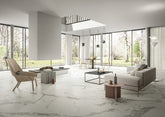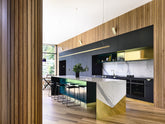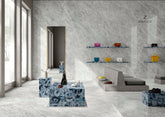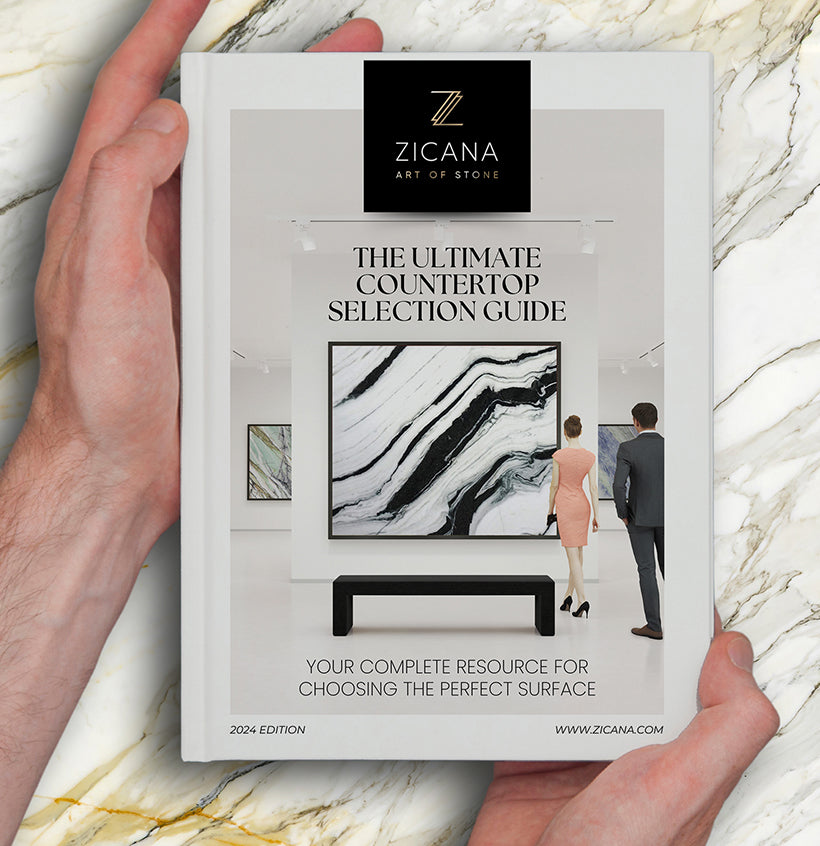Is Dekton Good for Kitchen Countertops? A Closer Look at Performance and Aesthetics
When selecting the perfect surface for a kitchen renovation or new construction, choosing the right countertop is arguably one of the most pivotal design decisions. Homeowners, interior designers, and construction professionals are all seeking materials that balance high-performance qualities with unmatched looks. This leads us to an important question: Is Dekton good for kitchen countertops?
In the world of ultracompact surfaces, few materials are as technically advanced or aesthetically versatile as Dekton. Produced through a sophisticated sintering process, Dekton offers superior durability, heat resistance, and color uniformity. Whether you're a discerning homeowner or an architect seeking premium-grade materials, understanding how Dekton stacks up is essential for your next kitchen project.
And as you consider upgrading your space, don't miss the opportunity to browse Zicana Boutique’s Exclusive Offers Collection for limited-time savings—and remember, you can use promo code WELCOME100 for $100 off any order over $1,000.
What Is Dekton and How Is It Made?
Dekton is an ultra-compact surface created by Cosentino, engineered using a unique process called Particle Sintering Technology. This technique involves subjecting raw materials such as quartz, porcelain, glass, and other natural minerals to intense heat (over 2,000°F) and pressure to fuse them into an ultra-dense, non-porous material. The result is a surface that brings together the best qualities of natural stone and modern engineering.
Often confused with porcelain or quartzite, Dekton belongs to a more elite class of sintered stone surfaces. For those curious about similar high-performance surfaces, Zicana Boutique offers an exquisite variety in our Sintered Stone Slabs Collection.
Top Advantages of Using Dekton for Kitchen Countertops
Let’s answer the question—is Dekton good for kitchen countertops?—by examining the key benefits Dekton brings to the heart of the home:
- Exceptional Durability: Dekton is one of the hardest surfaces available, making it highly resistant to scratches, chips, and abrasions—perfect for high-use kitchens.
- Heat Resistance: Place hot pots and pans directly on the surface without fear of damage. This material can tolerate extreme temperatures with no cracking or discoloration.
- UV Resistance: Dekton resists fading and yellowing in natural light, making it ideal for both indoor and outdoor kitchens.
- Non-Porous and Hygienic: With nearly zero porosity, Dekton resists water absorption and bacterial growth, important for food safety and easy cleaning.
- Stain Resistance: Wine, coffee, citrus, or soy sauce—no matter the spill, Dekton stands up to common kitchen stains with ease.
For professionals managing luxury builds or renovations, these properties make Dekton an obvious contender when design meets functionality.
A Designer’s Dream: Style Versatility and Aesthetic Options
Beyond performance, Dekton surfaces are remarkably versatile in style. Available in a vast spectrum of colors, textures, and finishes, Dekton mimics the luxurious look of marble, concrete, slate, and even wood grain—with none of the maintenance concerns.
Whether you are looking for a dramatic monolithic island or a subtle matte finish for a modern minimalist design, there is a Dekton style to match. Plus, if you are inspired by pure natural stones, Zicana Boutique’s Marble Slabs Collection or Onyx Slabs Collection could help you mix and match elements for a curated, multi-material design aesthetic.
How Dekton Compares to Other Countertop Materials
When weighing kitchen countertop materials, many clients wonder how Dekton aligns with other premium options like Quartz, Quartzite, or Porcelain.
- Dekton vs. Quartz: Unlike quartz, Dekton contains no resins, making it better suited for heat resistance and UV exposure. However, quartz may have a slightly warmer appearance and is often preferred for traditional-style kitchens. Consider our Raphael Quartz Collection if you appreciate quartz’s soft elegance.
- Dekton vs. Porcelain: Both are ultracompact and offer similar strengths, yet Dekton’s sintering process and higher density arguably grant it superior strength and structural integrity. It is also slightly thicker and easier to fabricate with beveled edges.
- Dekton vs. Natural Stone: While natural stones like marble and granite offer unmatched organic beauty, they require sealing and can be more susceptible to etching and stains. For clients desiring high performance with a natural look, Dekton is an excellent alternative.
Still unsure? Zicana Boutique offers Made-to-Measure Custom Countertops to tailor surface choices to your exact needs and aesthetic vision.
Common Concerns When Choosing Dekton
Despite its strengths, Dekton is not without considerations:
- Edge Chipping: While highly durable across surface areas, Dekton can be prone to edge chipping if not properly fabricated or installed.
- Higher Investment: As a high-end surface, Dekton’s price point may be steeper. However, its longevity and visual appeal make it a sound investment, especially with Zicana Boutique’s $100 off special promo.
These concerns can be mitigated when working with professional fabricators and suppliers who understand the unique properties of ultracompact surfaces—like Zicana Boutique’s team of material experts.
Frequently Asked Questions
Is Dekton more expensive than quartz?
Dekton generally falls within a similar price range as high-end quartz, but it can be slightly more expensive depending on the color and finish you select. However, considering its superior durability and heat resistance, many consider the added cost worthwhile for long-term use.
Does Dekton stain easily?
No. Dekton is highly resistant to staining thanks to its ultra-low porosity. Everyday kitchen messes—from red wine to turmeric—can be wiped away without concern for permanent damage.
Can Dekton be used for waterfall edges or integrated sinks?
Absolutely. Dekton's structural integrity makes it an ideal material for modern features like waterfall island countertops and fabricated sinks. Skilled stone artisans can achieve seamless applications with proper fabrication techniques.
Is Dekton a good choice for outdoor kitchens?
Yes, Dekton performs beautifully outdoors. Its UV resistance, weather tolerance, and color stability make it one of the best materials for open-air kitchen spaces.
Final Words: Is Dekton the Right Choice for You?
So, is Dekton good for kitchen countertops? The answer is a resounding yes—if you value long-term durability, unrivaled resistance to elements, and sleek, cutting-edge aesthetic appeal. Whether you’re designing a statement kitchen island or outfitting a high-traffic family hub, Dekton meets today’s luxury kitchen standards at every level.
Explore Zicana Boutique’s Exclusive Offers Collection to discover sintered stone slabs, quartz alternatives, and more to inspire your next project—and don’t forget to use promo code WELCOME100 for $100 off any order over $1,000. Need personalized guidance? Connect with our material experts to find the perfect product for your vision.



















